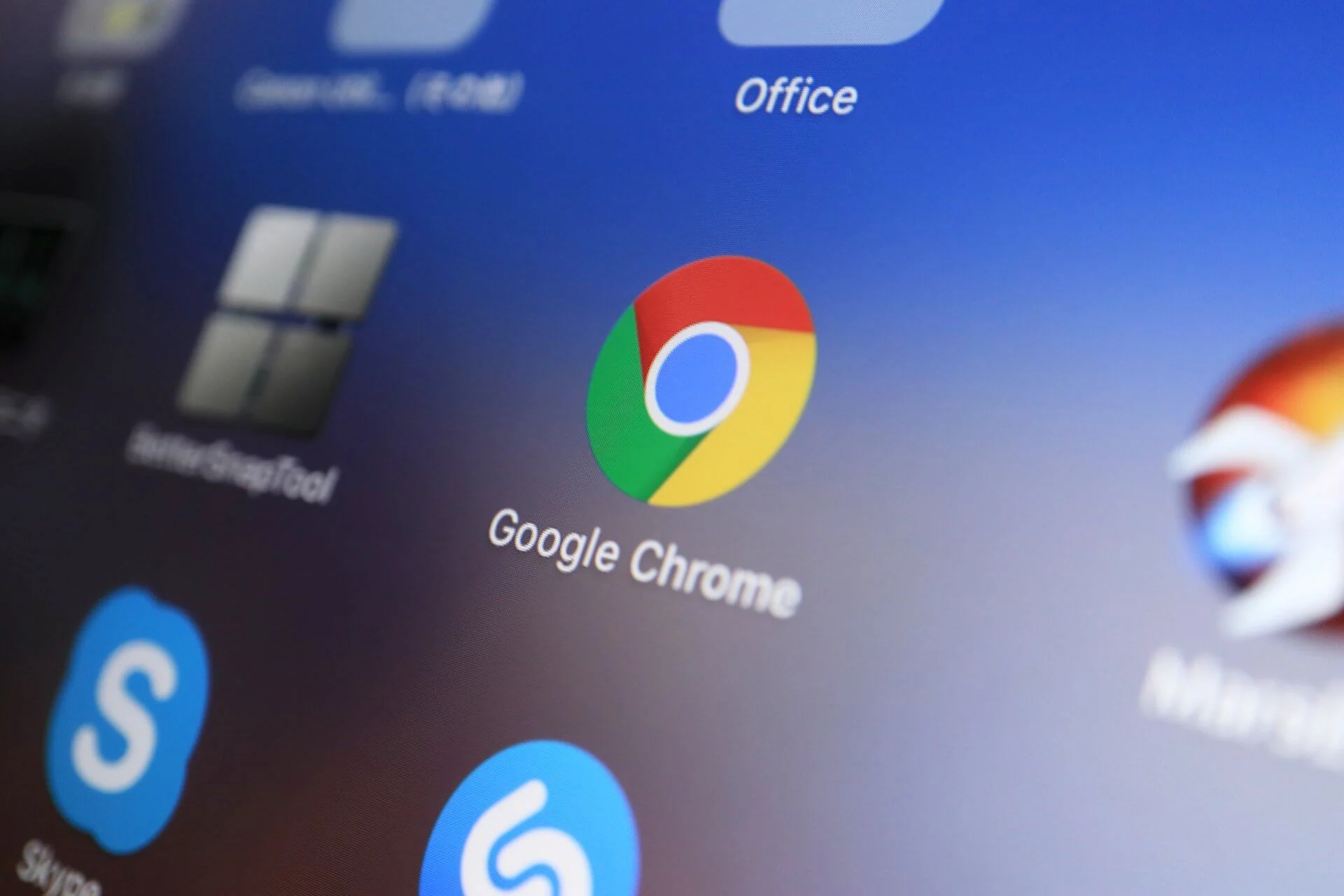Technology
**This is a review of the book “Cloud Policy" by Jennifer Holt, Professor and Chair of Film and Media Studies at the University of California, Santa Barbara, and a former Fellow with the Center for Democracy & Technology in Washington, DC.**__ **An open access edition of the book can be freely downloaded on the linked site.**__ Cloud Policy is a policy history that chronicles how the past century of regulating media infrastructure in the United States has eroded global civil liberties as well as democratic principles and the foundation of the public interest. Jennifer Holt explores the long arc of regulating broadband pipelines, digital platforms, and the data centers that serve as the cloud's storage facilities—an evolution that is connected to the development of nineteenth- and twentieth-century media and networks, including railroads, highways, telephony, radio, and television. In the process, Cloud Policy unearths the lasting inscriptions of policy written for an analog era and markets that no longer exist on the contemporary governance of digital cloud infrastructure. Cloud Policy brings together numerous perspectives that have thus far remained largely siloed in their respective fields of law, policy, economics, and media studies. The resulting interdisciplinary argument reveals a properly scaled view of the massive challenge facing policymakers today. Holt also addresses the evolving role of the state in the regulation of global cloud infrastructure and the growing influence of corporate gatekeepers and private sector self-governance. Cloud policy's trajectory, as Holt explains, has enacted a transformation in the cultural valuation of infrastructure as civic good, turning it into a tool of commercial profit generation. Despite these current predicaments, the book's historical lens ultimately helps the reader to envision restorative interventions and new forms of activism to create a more equitable future for infrastructure policy.
 theintercept.com
theintercept.com
> The Department of Defense wants technology so it can fabricate online personas that are indistinguishable from real people.
 fortune.com
fortune.com
Earlier this year, two obscure companies from Northern Louisiana brokered a multimillion-dollar deal with former President Donald Trump’s Truth Social and walked away with a finders’ fee valued at $155 million. The companies—WorldConnect IPTV and JedTec—formed a joint venture, named WorldConnect Technologies, which served as the middleman between Trump Media & Technology Group (TMTG) and Perception TV CDN, the company hired to build the tech infrastructure needed to power Truth Social’s foray into video streaming. To better understand the nature of TMTG’s burgeoning media holdings and the companies building it, Fortune examined dozens of business filings from the U.S. and abroad, and spoke to seven sources that previously worked with Perception’s cofounders, its current chair Matjaz “Matt” Vidmar and CEO John Mills. What emerged from these sources was a “no questions asked” policy at Perception and previous companies connected to Vidmar and Mills that led them to work with Chinese and Russian state-backed propaganda networks, Islamist television channels, and Iranian corporations. TMTG chose to work with Perception despite the fact that in the past it did business with now-sanctioned entities. [...] **TV channels for Russia, China, and Islamic fundamentalists** Vidmar’s previous company, Vision247, also had a history of working with clients that ran afoul of regulators [...] The company exhibited little discernment regarding who it would work with, striking deals with Russia Today (RT), China Central Television (CCTV), and several Islamist networks. [...] RT and CCTV are the state-backed media outlets of Russia and China respectively. Vision247 also carried the broadcast channels of the Islamist media companies Peace TV and Almajd Network. Almajd is an Arabic-language media company that has close ties to the Salafi branch of Islamic fundamentalism. In 2019, Peace TV’s content led to it being banned from broadcasting in the U.K. in 2019 for inciting violence and hate speech. Peace TV was a client of Vision247 at the time it was booted from British airwaves. [...]
 techcrunch.com
techcrunch.com
> On Wednesday, social network X (formerly Twitter) updated its Privacy Policy to indicate that it would allow third-party “collaborators” to train their AI models on X data, unless users opt out. While X owner Elon Musk trained xAI’s Grok AI chatbot on X user data, leading to an investigation by the EU’s lead privacy regulator, the company hadn’t yet amended its policy to indicate its data may also be used by third parties.
 techcrunch.com
techcrunch.com
> The Federal Communications Commission (FCC) Thursday issued rules requiring that all mobile phones — including smartphones — sold in the U.S. be compatible with hearing aids. The news comes two years after the FDA made hearing aids available to all Americans without a prescription.
 www.theverge.com
www.theverge.com
> The cuts come after CEO Mark Zuckerberg declared 2023 to be the ‘year of efficiency.’
 www.theverge.com
www.theverge.com
> Maybe it will finally make gym memberships easier to cancel.
 techcrunch.com
techcrunch.com
> Elon Musk’s X won’t be regulated under the European Union’s Digital Markets Act (DMA) the Commission decided Wednesday, despite the social media platform hitting usage thresholds earlier this year.
 www.techspot.com
www.techspot.com
> According to recent user reports, uBlock Origin is quickly disappearing from the Chrome Web Store. The official page for the ad-blocking extension now states that it is unavailable because it doesn't comply with Chrome's "best practices" for add-ons. However, we can confirm that the page is still accessible from our EU Windows client.
 www.techspot.com
www.techspot.com
> Microsoft is busy rolling out the scheduled release of Windows 24H2, but some users have already encountered major compatibility and stability issues after installing the upgrade. In recent days, owners of NVMe SSDs from Western Digital have flooded the company's forums with reports of bugs and blue screen of death crashes.
 www.theverge.com
www.theverge.com
cross-posted from: https://lemmy.zip/post/24635684 > The changes are set to go into effect on November 1st.
 www.telegraph.co.uk
www.telegraph.co.uk
> Channel 4 to allow brands to tailor who sees adverts as part of efforts to boost revenues
 www.theverge.com
www.theverge.com
> “A customs-related issue is hindering” drone shipments, DJI claims.
 themarkup.org
themarkup.org
> Inspect batches of websites for user-tracking tech with our new open-source command-line tool
 www.neowin.net
www.neowin.net
> The UK Government has begin a consultation into whether USB-C should be made a common charging standard.
 www.techspot.com
www.techspot.com
> The experiment involved participants utilizing specialized equipment including sensors and earbuds. On September 24, one participant sleeping at home induced lucid dreaming, a state in which you are aware that you are dreaming. It is apparently a trainable skill, although I have only ever personally experienced it a handful of times throughout my life.
 www.theverge.com
www.theverge.com
Meta has a suggestion for folks who forgot to go outside and look at the Northern Lights on Thursday night: just use AI to fake it! But Threads users who replied to Meta’s idea, posted along with three AI-generated images of the Aurora Borealis Meta last night, seem to disagree.
 techcrunch.com
techcrunch.com
> With the deal, Google joins Microsoft and Amazon in turning to nuclear power to satiate its thirst for electricity.
> The FIDO Alliance has published a working draft of a new set of specifications for secure credential exchange that, when standardized and implemented by credential providers, will enable users to securely move passkeys and all other credentials across providers. The specifications are the result of commitment and collaboration amongst members of the FIDO Alliance’s Credential Provider Special Interest Group including representatives from: 1Password, Apple, Bitwarden, Dashlane, Enpass, Google, Microsoft, NordPass, Okta, Samsung and SK Telecom.
 www.techspot.com
www.techspot.com
> After years of research, scientists at ETH Zurich have developed a method to make sound waves travel in a single direction. The study was led by Professor Nicolas Noiray, who has spent much of his career studying and preventing potentially dangerous self-sustaining thermo-acoustic oscillations in aircraft engines, believed there was a way to harness similar phenomena for beneficial applications.
 globalvoices.org
globalvoices.org
A US web-hosting company has been issued a notice by Hong Kong police asking it to take down the website of Flow HK, a media outlet co-founded by pro-democracy activists who have left the city, on national security grounds. Automattic, the company behind web content management system WordPress, told HKFP on October 7 2024 that it had received a take-down demand from Hong Kong authorities relating to the website of Flow HK. The company said it had not complied with the order and had notified the site owner. In an emailed reply to HKFP, Sunny Cheung — one of the co-founders of Flow HK — said Hong Kong police had said the outlet was suspected of violating a national security law imposed by Beijing in 2020 and a separate security law enacted in March, the Safeguarding National Security Ordinance, known locally as Article 23. Cheung said police suspected Flow HK of committing offences including secession, subversion, and collusion under the Beijing-imposed security law, as well as sedition under Article 23. [...] Flow HK was founded in early 2021. According to its mission written in Chinese on the website, the publication aims to connect the Hong Kong diaspora and “pass on the torch of resistance.” Other editorial members include wanted activist Ray Wong, an ex-leader of political group Hong Kong Indigenous who was granted political asylum in Germany in 2018, as well as digital rights activist Glacier Kwong, who also lives in Germany.
cross-posted from: https://lazysoci.al/post/18362688 > Summary: > > In the video, Mrwhosetheboss argues that Google Search has become worse. He believes that Google has prioritized sponsored links and shopping ads over organic search results. As a result, it is becoming increasingly difficult to find the information you are looking for on Google. He also criticizes Google for its use of generative AI, which he believes is not accurate and could eventually replace the need to visit other websites.
> TikTok is reportedly ditching more of its human moderators to focus on AI-powered moderation instead.
 techcrunch.com
techcrunch.com
> Silicon Valley founders like Palmer Luckey and Joe Lonsdale have been grappling with fully autonomous weapons.
 www.straitstimes.com
www.straitstimes.com
> The restricted items include microchips, and India is exceeded only by China.
 www.wired.com
www.wired.com
> Some companies let you opt out of allowing your content to be used for generative AI. Here’s how to take back (at least a little) control from ChatGPT, Google’s Gemini, and more.
 www.techspot.com
www.techspot.com
> Steam has begun displaying a new notice in its shopping cart, explicitly clarifying the nature of the transaction: "A purchase of a digital product grants a license for the product on Steam." The change is Valve's way of complying with an incoming California law prohibiting digital marketplaces from implying that customers own the games, movies, ebooks, and other digital content they buy.
 edition.cnn.com
edition.cnn.com
Though it consistently ranks among the world’s safest big cities, police in the Asian financial hub say the new cameras are needed to fight crime – and have raised the possibility of equipping them with powerful facial recognition and artificial intelligence tools. That’s sparked alarm among some experts who see it as taking Hong Kong one step closer to the pervasive surveillance systems of mainland China, warning of the technology’s repressive potential. Hong Kong police had previously set a target of installing 2,000 new surveillance cameras this year, and potentially more than that each subsequent year. The force plans to eventually introduce facial recognition to these cameras, security chief Chris Tang told local media in July – adding that police could use AI in the future to track down suspects. [...] Hong Kong police have repeatedly pointed to other jurisdictions, including Western democracies, that also make wide use of surveillance cameras for law enforcement. For instance, Singapore has 90,000 cameras and the United Kingdom has more than seven million, Tang told local newspaper Sing Tao Daily in June. [...] “The difference is how the technology is being used,” said Samantha Hoffman, a nonresident fellow at the National Bureau of Asian Research who has studied China’s use of technology for security and propaganda. Places like the United States and the UK may have problems with how they implement that technology, too – but “this is fundamentally different… It has to do specifically with the system of government, as well as the way that the party state… uses the law to maintain its own power,” said Hoffman. [...] Hong Kong has more than 54,500 public CCTV cameras used by government bodies – about seven cameras per 1,000 people, according to an estimate by Comparitech, a UK-based technology research firm.~~
 www.forbes.com
www.forbes.com
cross-posted from: https://feddit.org/post/3693618 > cross-posted from: https://feddit.org/post/3693467 > > > Chinese social media giant Bytedance was dealt a stinging blow last September when Ireland’s data privacy watchdog issued it a record $370 million fine over its failure to properly safeguard the personal data of children using its app TikTok. New corporate filings suggest that Bytedance expects more fines like this to come. The company has explicitly set aside $1 billion to cover future fines from European privacy regulators. > > > > Bytedance has faced a barrage of lawsuits and investigations from regulators around the world over TikTok’s addictive design, handling of user data and lack of safeguards for teenage users. Only yesterday, the attorneys general of thirteen states and the District of Columbia filed separate lawsuits claiming that TikTok was designed to be used compulsively and had harmed children and teens as a result. > > > > The $1 billion provision for future fines was revealed in corporate accounts for TikTok’s European operations filed this week with the United Kingdom’s Companies House. The accounts also showed that TikTok’s European revenues surged to $4.57 billion last year, up from $2.6 billion in 2022. Its losses have also nearly tripled to $1.3 billion in 2023, up from $512 million. > > > > [...] > > > > The scale of total fines and penalties facing TikTok on the European continent could be even larger than the $1 billion provision in its 2023 accounts. The European Commission opened an investigation into TikTok under the Digital Services Act (DSA) in February 2024. The European Union can fine companies up to 6% of global revenue for breaches of the DSA, or impose a ban. > >
For the first time, internal TikTok communications have been made public that show a company unconcerned with the harms the app poses for American teenagers. This is despite its own research validating many child safety concerns. The confidential material was part of a more than two-year investigation into TikTok by 14 attorneys general that led to state officials suing the company on Tuesday. The lawsuit alleges that TikTok was designed with the express intention of addicting young people to the app. The states argue the multi-billion-dollar company deceived the public about the risks. In each of the separate lawsuits state regulators filed, dozens of internal communications, documents and research data were redacted — blacked-out from public view — since authorities entered into confidentiality agreements with TikTok. But in one of the lawsuits, filed by the Kentucky Attorney General’s Office, the redactions were faulty. This was revealed when Kentucky Public Radio copied-and-pasted excerpts of the redacted material, bringing to light some 30 pages of documents that had been kept secret. [...] **TikTok’s own research states that “compulsive usage correlates with a slew of negative mental health effects like loss of analytical skills, memory formation, contextual thinking, conversational depth, empathy, and increased anxiety**,” according to the suit. In addition, the documents show that TikTok was aware that “compulsive usage also interferes with essential personal responsibilities like sufficient sleep, work/school responsibilities, and connecting with loved ones.” **TikTok: Time-limit tool aimed at ‘improving public trust,’ not limiting app use** The unredacted documents show that TikTok employees were aware that too much time spent by teens on social media can be harmful to their mental health. The consensus among academics is that they recommend one hour or less of social media usage per day. The app lets parents place time limits on their kids’ usage that range from 40 minutes to two hours per day. TikTok created a tool that set the default time prompt at 60 minutes per day. [...]








